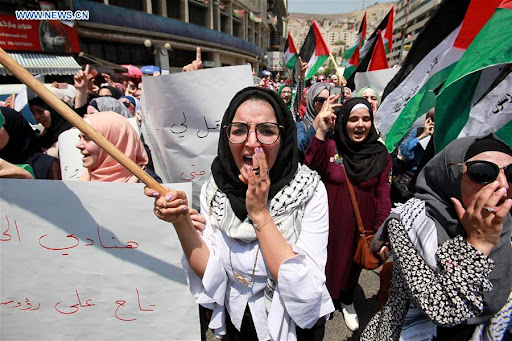
Muslim women have taken up a significant role in the protests and provocations over Palestinian rights, signaling significant changes in traditional Islamic gender roles, writes Salwa Alinat-Abed in the journal Contemporary Islam (online in October). Alinat-Abed focuses on the growing role of Muslim women in the protests and activism at al-Aqsa Mosque in Jerusalem, demonstrating their objection to Israel’s control over the holy site. Muslim activists have long seen the mosque as an “arena of confrontation” and protest against Israeli rule and its symbols, rejecting any political or national division of Jerusalem and the al-Aqsa Mosque within it. The guardian role that Muslims see themselves playing for the mosque has now expanded in an unprecedented way to involve a growing cadre of women activists who are reinterpreting Islamic concepts of provocation and ribat (political and social struggle). There have long been women involved in activism in the Palestinian cause, but their “struggle in the past was mainly nationalist in nature, and their involvement did not invoke religious symbolism and terminology in the same way as the murabitat,” the term for the Muslim women activists.

Provocation has traditionally meant any action seen as angering the “infidels,” which today can mean defiantly chanting “Allahu Akbar” (“God is the greatest”) repeatedly whenever the women see Israeli policemen, Jewish worshippers, or foreign tourists within the mosque’s compound. Another form of provocation is when the women sit for several hours in areas within the compound where Jewish worshippers come for prayer or visit and refuse to clear the site when asked to do so. Alinat-Abed argues that these new women activists are providing new interpretations of Islamic concepts to advance gender equality. While not directly engaging in the explicit intellectual efforts of Muslim feminists, they reinterpret the religious term “qiwama,” which relates to men’s responsibility in providing for their women’s protection, livelihood, and education, to mean women’s taking up equal roles of responsibility for sacred spaces and for the men in their lives. She concludes that “provocation becomes a vehicle through which the women not only resist occupation but also build their power from within Islam, proving they are full partners in the struggle while challenging both external and internal authorities.”
(Contemporary Islam, https://link.springer.com/journal/11562)